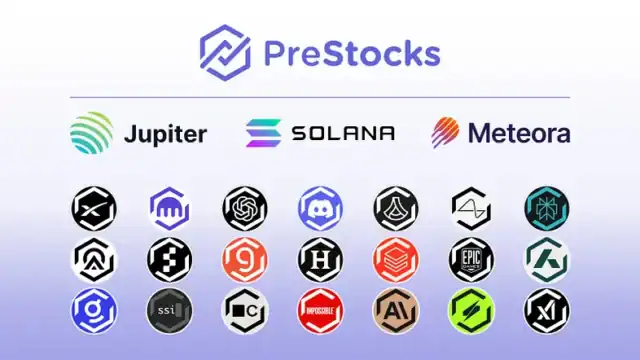Self-managed superannuation funds (SMSFs) offer trustees flexibility in investment choices, but is it possible for an SMSF to invest in tokenised stocks via a DeFi (Decentralised Finance)? Tokenised stocks, which are digital representations of equity or exposure to shares, are often facilitated through decentralised finance (DeFi) platforms. Platforms such as PreStocks (prestocks.com) and Republic (republic.com/tokenization) enable access to pre-IPO companies and other assets via blockchain technology, potentially using networks like Solana or Ethereum.
This article addresses whether an SMSF can invest in such assets, focusing on ownership requirements, the nature of these investments, and associated complexities. While SMSFs are not prohibited from investing in tokenised assets if they align with the fund’s investment strategy and sole purpose test, trustees must ensure compliance to avoid penalties. The Australian Taxation Office (ATO) provides guidance on similar assets like cryptocurrencies, which can inform approaches to tokenised stocks. Always seek professional advice tailored to your fund’s circumstances.
Is Investing in Tokenised Stocks Permissible for an SMSF?
SMSFs can invest in a wide range of assets, including digital or tokenised ones, as long as the investment:
- Complies with the fund’s trust deed and investment strategy.
- Meets the sole purpose test (i.e., providing retirement benefits to members).
- Adheres to SIS Act rules on asset separation, in-house assets, and borrowing limits.
- Is not acquired from a related party unless exempted.
The ATO has confirmed that investments in cryptocurrencies and similar digital assets are allowable if these conditions are met. Tokenised stocks, which may represent exposure to pre-IPO companies, fall into a similar category. However, DeFi platforms introduce additional considerations, such as smart contract risks and platform reliability. For instance, PreStocks promotes access to pre-IPO liquidity with no minimums and instant trading, while Republic focuses on tokenising assets across industries like tech and crypto, enabling programmable terms and global access. Trustees should verify that the platform’s offerings align with Australian regulations, as offshore platforms may not provide the same protections.
Ownership and Separation of Assets
A critical requirement under the SIS Act (regulation 4.09A) is that SMSF assets must be separated from trustees’ personal or business assets and clearly owned by the fund. This ensures protection in events like creditor disputes.
Registration in the Trustee’s Name
For traditional assets, ownership is typically registered in the trustees’ names “as trustee for” the SMSF (e.g., “Jack and Jill Smith as trustees for the Smith SMSF”). However, tokenised stocks on DeFi platforms are unlikely to allow direct registration in this manner due to their blockchain-based nature. Tokens are often held in digital wallets, where ownership is recorded on-chain rather than through conventional titles.
Declaration or Acknowledgement of Trust
If direct registration is not possible, a Declaration of Trust or similar acknowledgement may suffice to demonstrate beneficial ownership by the SMSF. This approach is commonly used for self-custody crypto assets, where trustees declare that the assets are held on behalf of the fund. The ATO accepts such declarations if they are supported by legal advice and evidence showing:
- Assets are distinguishable from personal holdings (e.g., separate wallets).
- Purchase documents (e.g., transaction records) link to the fund.
- Ongoing separation, such as dedicated bank accounts for related transactions.
Auditors must obtain sufficient evidence during the annual compliance audit to confirm ownership, including holding statements and transaction listings. If evidence is inadequate, auditors may issue a qualified opinion or report a contravention. For platforms like PreStocks or Republic, trustees should check if the platform provides tools for such declarations or if third-party custodians can hold tokens “as trustee for” the SMSF.
Failure to maintain separation could result in non-compliance, potentially leading to the fund being deemed non-complying and facing tax penalties up to 45% on assets.
Nature of Tokenised Assets and Legal Ownership
Tokenised stocks vary in structure and may not always confer direct legal ownership in the underlying company.

Underlying Legal Ownership
Some tokenised assets represent actual shares, where the token is a digital certificate of ownership recorded on a blockchain. This could grant shareholder rights like voting or dividends. However, many platforms, especially for pre-IPO companies, use synthetic structures:
- Derivatives and Options Exposure: Tokens might provide economic exposure via options, forwards, or swaps, mirroring the stock’s price without transferring ownership. For example, the token could be a derivative contract backed by the platform’s holdings, not direct equity.
- Pre-IPO Focus: Platforms like PreStocks and Republic target pre-IPO investments, where tokens may represent forward contracts or rights to future shares. Republic emphasises blockchain for transparency and accessibility but does not detail direct ownership.
In these cases, investors do not become registered shareholders and may lack legal recourse if the company underperforms or the platform fails.
Buyer Beware: Risks and Due Diligence
Trustees must exercise caution, as tokens could be disconnected from the actual company. For instance:
- Tokens on Solana or Ethereum might be worthless if not backed by enforceable rights, due to smart contract vulnerabilities, platform insolvency, or regulatory changes.
- DeFi elements introduce risks like hacking, impermanent loss, or yield farming pitfalls, where rewards from staking tokens could be treated as income.
The ATO warns of theft, scams, and volatility in crypto-like assets. Conduct thorough due diligence:
- Review the platform’s whitepaper or terms for backing mechanisms.
- Assess legal jurisdiction (e.g., US-based Republic may involve cross-border issues).
- Consult legal and financial advisers to confirm the asset’s structure and SMSF compliance.
Accounting, Audit, and Tax Complexities
Tokenised assets can complicate SMSF administration due to their novelty.

Accounting Challenges
- Valuation: Assets must be valued at market value annually. Tokenised stocks may lack clear markets, requiring independent valuations or exchange data. Volatility can affect contribution caps and pension calculations.
- Record-Keeping: Maintain detailed transaction histories, wallet addresses, and smart contract interactions. Use specialised software for tracking on-chain activities.
Audit Considerations
- Auditors need evidence of compliance, including ownership declarations, separation, and alignment with the investment strategy.
- For DeFi, verify no prohibited arrangements (e.g., lending to related parties). Complex structures like derivatives may require specialist auditors familiar with blockchain.
Tax Implications
- Capital Gains Tax (CGT): Disposals trigger CGT events, calculated on cost base vs. proceeds. Wrapping/unwrapping tokens in DeFi could be separate events.
- Income: Yields from staking or lending may be assessable as ordinary income.
- Concessional Treatment: SMSFs enjoy 15% tax on earnings (or 0% in pension phase), but non-compliance risks higher rates.
- Reporting: Include in the annual SMSF return. Use ATO tools for crypto CGT calculations, adapting for tokenised assets.
These complexities may increase professional fees. Engage SMSF specialists early.
Conclusion
SMSFs can potentially invest in tokenised stocks via platforms like PreStocks and Republic, but only if ownership is clearly established (often via declarations), the assets align with regulations, and risks are mitigated through due diligence. The use of derivatives for exposure rather than direct ownership underscores the need for caution—tokens may not equate to true equity. Additionally, prepare for heightened accounting, audit, and tax demands.
This information is general; consult an SMSF auditor, licensed financial adviser, or the ATO for specific guidance. For more on crypto investments, visit the ATO’s resources on digital assets.
